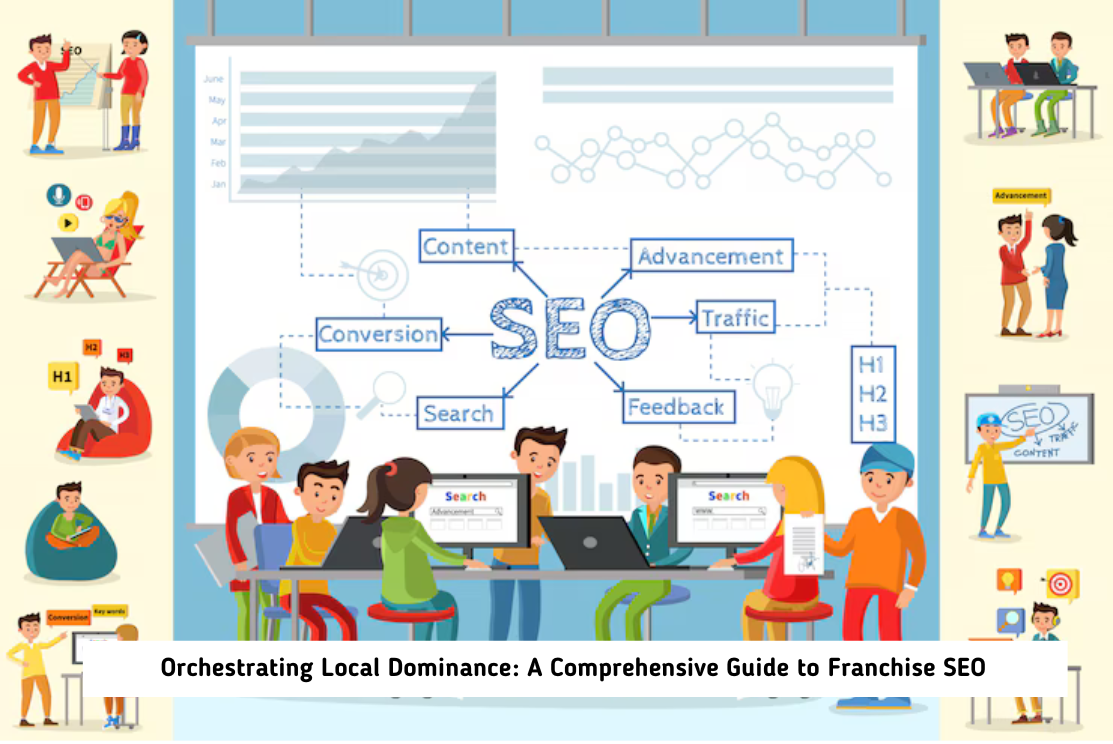In today’s digital-first world, enterprise-level businesses rely heavily on organic visibility to dominate their market. However, due to the complexity of large websites, managing SEO becomes a much more strategic and layered task. This is where enterprise SEO audit services come into play. A comprehensive audit helps identify technical flaws, content gaps, and optimization opportunities that could be affecting search performance at scale.
In this blog, we’ll cover what enterprise SEO audits are, why they are crucial, and how businesses can leverage them to stay competitive in their industry.
What is an enterprise SEO audit?
An enterprise SEO audit is a deep, strategic analysis of a large-scale website’s SEO performance. Unlike a standard audit, it’s tailored for websites with hundreds or thousands of pages, complex CMS setups, multiple stakeholders, and often a global or multilingual presence.
Key Areas Covered:
- Technical SEO Review
- On-page SEO Evaluation
- Content Analysis
- Backlink Profile Review
- Mobile & Core Web Vitals Assessment
- International & Local SEO Audit (if applicable)
- SEO Architecture & Internal Linking Analysis
This isn’t a one-size-fits-all approach; enterprise audits need to be customized based on business goals, industries, and target markets.

Why Enterprise Businesses Need SEO Audit Services
Large websites are more prone to technical SEO issues and content inconsistencies, especially when multiple teams are involved in content publishing and website development.
Essential Reasons for an Enterprise SEO Audit:
- Detect Hidden Technical Issues You may have broken links, crawl errors, duplicate content, or slow-loading pages that Google penalizes without even knowing it.
- Optimize for Scale An enterprise audit ensures that your SEO strategy works for thousands of pages, categories, and content hubs.
- Keep Up with Algorithm Changes Google’s updates (like helpful content updates, core updates, etc.) can impact large websites drastically. An audit helps you stay compliant.
- Improve ROI from SEO When you identify and fix bottlenecks, your rankings, traffic, and conversions improve, giving you better ROI from organic channels.
- Strengthen Cross-Team Alignment: Audits provide a clear roadmap that SEO teams, developers, and content marketers can align on.
Core Components of Enterprise SEO Audit Services
Let’s break down the main elements of a successful audit:
Key Audit Components:
1. Technical SEO Audit
- Crawlability & Indexability: Can search engines access all key pages?
- Site Speed & Performance: Are your pages loading under 2–3 seconds?
- Mobile Friendliness: Is the sitexpertise.sponsive?
- HTTPS & Security: Are SSL and security protocols active?
- Core Web Vitals: LCP, FID, and CLS—are they optimized?
2. On-Page SEO Audit
- Are meta titles and descriptions optimized and unique?
- Proper use of header tags (H1–H6)?
- Image optimization (file names, alt text)?
- Schema markup for enhanced SERP visibility?
3. Content Audit
- Review of blog, service, and product pages
- Identification of duplicate, thin, or outdated content
- Topic coverage and keyword alignment
- technical and contention or pruning
4. Backlink Profile Analysis
- Evaluating high-authority backlinks
- Identifying spammy or toxic links
- Anchor text distribution
- Link opportuniti” report”—enterpriseparison
5. International & Local SEO Audit
- Use of hreflang tags for multilingual targeting
- Local business schema and Google Business Profile (if relevant)
- Country-targeted content and URL structures
6. UX & Site Architecture
- Logical and SEO-friendly URL structure
- Internal linking strategy
- Easy navigation and click-depth optimization

Tools Used for Enterprise SEO Audits
A robust audit typically uses a combination of industry tools and manual expertise.
Common SEO Audit Tools:
- Google Search Console & GA4
- Screaming Frog / Sitebulb / DeepCrawl
- Ahrefs / SEMrush / Moz Pro
- PageSpeed Insights / GTmetrix
- Surenterprise Clearaudit (for content gap analysis)
- Google Lighthouse (for CWV and performance)
How to Choose the Right SEO Audit Service Provider
When selecting an enterprise SEO agency or consultant, look for:
Key Considerations for Choosing a Provider:
- Experience with large-scale websites
- Data-driven approach & reporting
- Understanding of technical + content SEO
- Ability to collaborate with dev teams
- Proven success case studies
- Customized roadmap and execution plan
Avoid providers that offer a basic “automated audit” report”—enterprise SEO requires much more insight, strategy, and customization.
What Should You Expect After an Audit?
After the audit, you should receive:
Expected Deliverables:
- A comprehensive report with findings and screenshots
- A prioritized action plan (quick wins, mid-term fixes, long-term strategy)
- Recommendations across departments (content, development, design)
- Follow-up support or ongoing SEO retainers (if needed)
Conclusion
For enterprise businesses, SEO is not just about ranking a few keywords — it’s about scaling visibility, improving technical performance, and staying future-proof against search engine updates.
An Enterprise SEO Audit is the first and most critical step in uncovering hidden issues and building a roadmap toward long-term organic growth.
If you’re managing a large website and haven’t done a deep audit recently, now is the time to get one. Your competitors are likely optimizing — are you?

